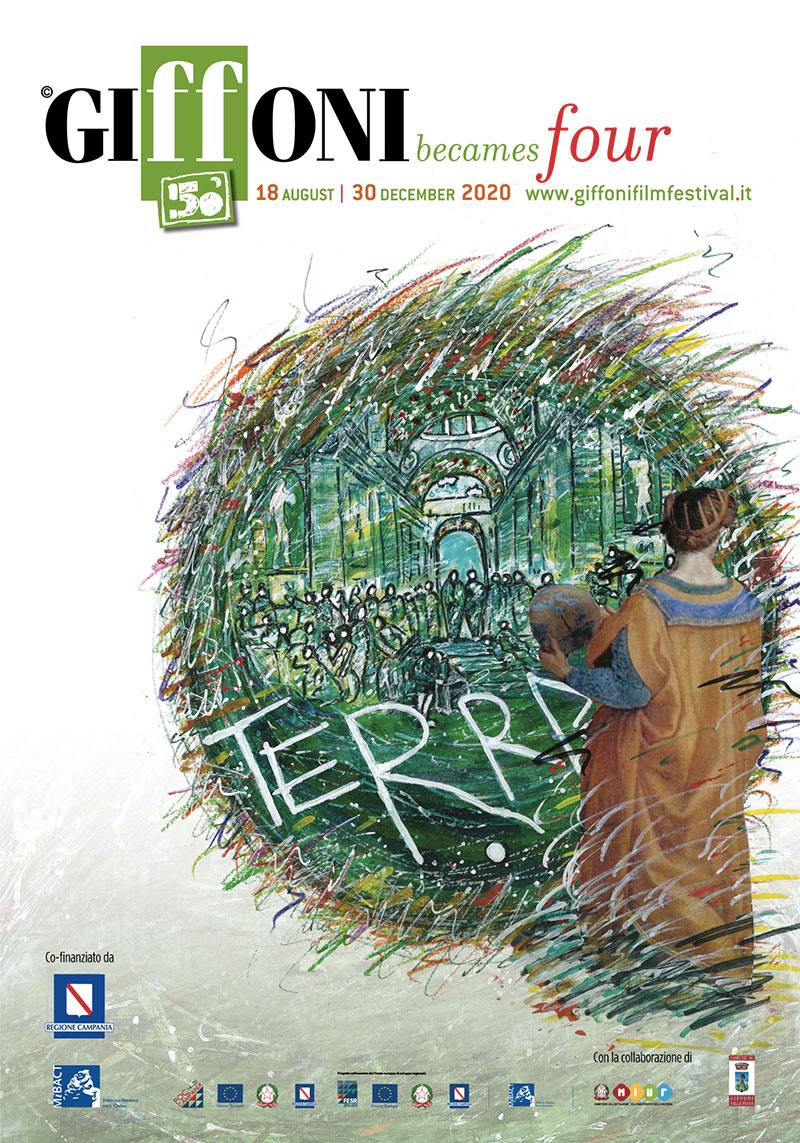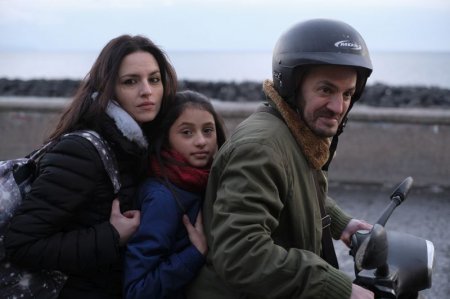|
 MARCELLO SANNINO MARCELLO SANNINO
He was born in Portici, in the province of Naples, in 1971. After his studies and various experiences in the field of architecture and independent publishing, he decided to commit himself to cinema. In addition to his commitment as a director, from 2008 to 2016 he collaborated as a teacher in various workshops and ateliers of real cinema. Film critic and event curator, his documentaries have been presented and awarded in various national and international festivals. ROSA PIETRA STELLA is his first feature film.
Director's statement
"There is a real person behind the inspiration to tell this story: a friend I knew years ago who often involved me in endless days, spent by chasing people to meet, last minute activities, daily illusions to keep me away from home and basically flee the fate of a life marked by birth. Starting from this relationship, I imagined the character of Carmela. The film tells the moment when Carmela must, out of necessity and unconscious desire, get out of her solitude, her pride, her closure to the world, and she meets the other. A "new" unknown and desperate other. In a world where the class struggle has been replaced by an internal struggle between those who live in marginality and clandestinity, Carmela uses the few weapons that she has as a means for her survival. This is the social and political sphere in which the story unfolds. The point is: talk about people or social problems? In reality, as Rossellini claimed about his masterpiece Europe '51, there is no such thing as just a "social" problem, problems are all human problems. And in these increasingly inhumane times, we have to start from the people. It is not the conscience of the individual that determines the social context in which his life takes place but the opposite. This relationship must be rethought, reversed or balanced. Beyond the reflection on the world, what has always caught my interest in my work is the person. In this case, a woman who still holds a marginal position in todays' society. My Carmela, in addition to being inspired by a real person, also takes after the women told in Rosetta by the Dardenne brothers, Adua and the companions of Antonio Pietrangeli, Mouchette by Robert Bresson, Vivre sa vie by J.L. Godard. but also in Gloria by John Cassavetes, Homeless or Law by A.Varda, Pasolini's Mamma Roma. Lonely women many times bewildered by the context around them. Often forced to make drastic decisions, sometimes cruel, driven by an absolute necessity. Women who struggle, who complicate their lives, who carry within themselves a great desire, a dream that is still confused but present, a dream waiting to be realized, perhaps in another life. Much of the film is set in Portici, a small but populous city on the southeast border of Naples. A wealthy and conformist town where the figure of Carmela, with her character and her difficulties in managing life and motherhood, stands out much more than in a city like Naples where her condition is common to many women, to many families. For her, the adjoining metropolis represents the place of great opportunities, of escape, a place where only a bunch of people know you and thus judge you less, but also the place where you get lost like in a magma where it is very difficult to move and from which it is impossible get out of unscathed. The scenes shot in Portici describe places of a certain beauty from an artistic and natural landscape point of view".
|










 MARCELLO SANNINO
MARCELLO SANNINO